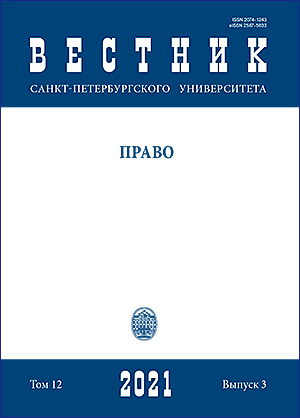The concept of hate speech as a threat to the information security of Internet communication
DOI:
https://doi.org/10.21638/spbu14.2021.305Abstract
The article is devoted to a comprehensive examination of the hate speech phenomenon in the aspect of legal and linguistic support for countering the information threats of Internet communication. The legal and linguistic analysis of the concept of “hate speech” is carried out by the authors according to the approaches of the European Court of Human Rights in the context of human rights and freedoms, as well as the protection of national security, constitutional order, public order, health and morality of the population. Verbal extremism as a criminalized part of hate speech is considered in the article from the standpoint of Russian, international and foreign legislation. The authors also analyzed the correlation of the following legal phenomena in international law: verbal religious extremism, insulting the feelings of believers, blasphemy and defamation of religions. The analysis of the scientists’ positions regarding the concept of “hate speech” and its criminalized part — verbal extremism: the analysis of the legal positions of the European Court of Human Rights, the Council of Europe, the United Nations, the Parliamentary Assembly of the Council of Europe regarding what kind of speech acts should be criminally punishable; as well as the analysis of the elements of crimes covered by the concept of “hate speech” in the criminal law of foreign states allowed the authors to formulate a list of features corresponding to extremist speech acts.
Keywords:
hate speech, information threat, verbal extremism, Internet communication, information security, speech act
Downloads
References
Downloads
Published
How to Cite
Issue
Section
License
Articles of "Vestnik of Saint Petersburg University. Law" are open access distributed under the terms of the License Agreement with Saint Petersburg State University, which permits to the authors unrestricted distribution and self-archiving free of charge.






